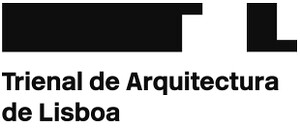October–December 2019
A team led by Éric Lapierre, the architect whose award winning practice is based in Paris, has been appointed as the curatorial team of the fifth edition of Lisbon Architecture Triennale, to be held from October to December 2019. The curatorial team, which runs the master Architecture & Experience in the school of architecture of Marne-la-Vallée (Paris), and will cooperate with philosopher Sébastien Marot, is composed of a highly qualified group of practitioners and theoreticians: Ambra Fabi, Giovanni Piovene, Mariabruna Fabrizi, Fosco Lucarelli, Laurent Esmilaire, Tristan Chadney and Vasco Pinelo de Melo.
The conceptual framework of the fifth Lisbon Triennale
Contemporary architecture seems split between, on the one hand, iconic buildings that aim to be monuments by forgetting their links to history and to the theoretical issues upon which the discipline has rested for ages, and on the other, buildings which are sated with historical references considered as an almost infinite reservoir of forms ready to be mixed at will, irrespective of their condition of appearance and meaning. In order to try overcoming these typical dead ends of post-truth architecture, this proposal wishes to state that high architecture has always been based on a specific rationality. This rationality is what allows buildings to communicate clear as well as obscure but always understandable meanings through the poetics of architecture. The fifth Triennale will aim to define the specificity of architectural rationality in order to keep creating relevant architectures bound to the past without nostalgia or literal quotations, and linked to this eternal core of architectural theory that needs to be permanently updated and modified so as to remain the same.
A more detailed perspective of the programme will be announced at a press conference in autumn 2017.
About the Chief Curator
Éric Lapierre is architect and theoretician of architecture. He is the founder and principal of Éric Lapierre Experience (ELEx), his Paris-based organization that coordinates both his activities as builder and as writer. ELEx buildings are recognized on national and international levels through many awards and publications. They aim at keeping architecture as a sophisticated cultural medium in the contemporary ordinary condition.
Éric Lapierre teaches design and theory of architecture at École Nationale Supérieure d’Architecture in Marne-la-Vallée (Paris), and in École Polytechnique Fédérale de Lausanne (EPFL), and has been guest teacher at Accademia di Architettura di Mendrisio, Université de Montréal (UdM), Université du Québec à Montréal (UQAM), and KU Leuven in Ghent. Among other books, he has edited Identification d’une ville – Architectures de Paris, 2002; Guide d’architecture de Paris 1900–2008, 2008; Le Point du Jour A Concrete Architecture, 2011; Architecture Of The Real, 2004, and Se la forma scompare, la sua radice è eterna, 2017.
About Lisbon Architecture Triennale
By all measures, the past edition of the Lisbon Triennale was a resounding success. Exceeding our best expectations, the 2016 edition featured the visionary ideas of 178 participants from 38 countries with a programme of 121 events that has received wide critical acclaim. The Lisbon Triennale is also pleased to announce that Lisbon City Hall, EDP Foundation, Millennium bcp Foundation and the Portuguese Ministry of Culture - Directory General for the Arts renewed their support of this major architectural forum positioning Lisbon as a leading cultural destination.
The Lisbon Triennale is a non-profit association whose mission is to research, foster and promote architectural thinking and practice. Since 2007, it holds a major forum every three years for the debate, discussion and dissemination of architecture across geographic and disciplinary boundaries. From the call for 2019’s curatorial team, 48 proposals have been submitted, involving 155 participants from 16 countries. The jury was composed by the Board of Directors of Lisbon Triennale and André Tavares, Chief Curator, together with late Diogo Seixas Lopes, of Lisbon Triennale’s 2016 edition.



